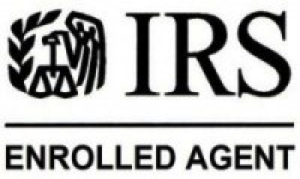What is an Enrolled Agent?
 WHAT IS AN ENROLLED AGENT?
WHAT IS AN ENROLLED AGENT?
Enrolled Agents (EAs) are America’s tax experts. EAs are the only federally-licensed tax practitioners who specialize in taxation and also have unlimited rights to represent taxpayers before the Internal Revenue Service. Enrolled Agents are governed by Treasury Circular 230 in their practice before the IRS.
What are the differences between enrolled agents and other tax preparers?
An enrolled agent is a person who has earned the privilege of representing taxpayers before the Internal Revenue Service by either passing a stringent and comprehensive examination covering individual and business tax returns and representation of clients before the IRS or through experience as a former IRS employee.
Enrolled agent status is the highest credential the IRS awards
Individuals who obtain this elite status must adhere to ethical standards and enrolled agents, like attorneys and certified public accountants (CPAs), have unlimited practice rights. This means they are unrestricted as to which taxpayers they can represent, what types of tax matters they can handle, and which IRS offices they can represent clients before. But unlike attorneys and CPAs, who may or may not choose to specialize in taxes, all enrolled agents specialize in taxation. CPAs and attorneys are licensed by the states, but enrolled agents are federally licensed. That means they are not limited to practicing in states from which they have received a license; they can practice anywhere in the United States.
Are enrolled agents required to take continuing professional education?
In addition to the stringent testing and application process, the IRS requires enrolled agents to complete 72 hours of continuing education every three years to maintain their licenses. The National Association of Enrolled Agents (NAEA), of which I am a member, raises the bar even further—its members are required to complete at least 90 hours in a three-year period.


